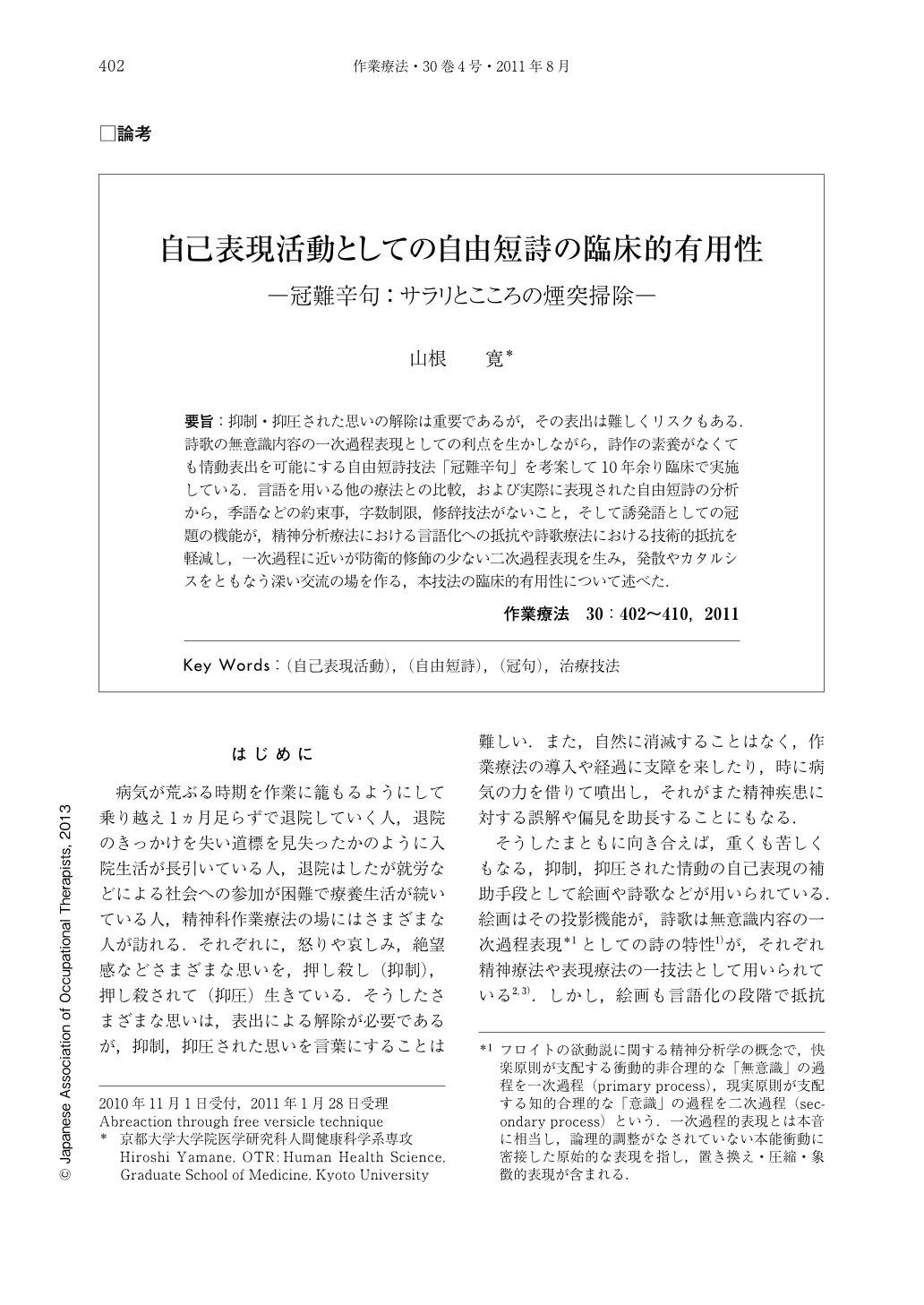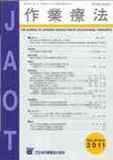Japanese
English
- 販売していません
- Abstract 文献概要
- 1ページ目 Look Inside
- 参考文献 Reference
要旨:抑制・抑圧された思いの解除は重要であるが,その表出は難しくリスクもある.詩歌の無意識内容の一次過程表現としての利点を生かしながら,詩作の素養がなくても情動表出を可能にする自由短詩技法「冠難辛句」を考案して10年余り臨床で実施している.言語を用いる他の療法との比較,および実際に表現された自由短詩の分析から,季語などの約束事,字数制限,修辞技法がないこと,そして誘発語としての冠題の機能が,精神分析療法における言語化への抵抗や詩歌療法における技術的抵抗を軽減し,一次過程に近いが防衛的修飾の少ない二次過程表現を生み,発散やカタルシスをともなう深い交流の場を作る,本技法の臨床的有用性について述べた.
The use of poetry as a technique to induce abreaction is recognized as an effective treatment. “Kannanshinku”, an alternative expression treatment, makes the best use of the advantages of poetry treatment, while providing benefits for patients without knowledge of or inclination toward poetry. “Kannanshinku” does not require special rhetorical technique, or seasonal words, and does not limit the number of letters or words in the poems. About ten years have passed since “Kannanshinku” was developed as a psychoanalytic technique, and previous research has documented its efficacy in long-term hospitalized patients. This study compared psychoanalysis, poetry treatment and “Kannanshinku” using free versicle, and analyzed the patients' expressions. The results show that this technique brings abreaction, and is useful in clinical settings.

Copyright © 2011, Japanese Association of Occupational Therapists. All rights reserved.


